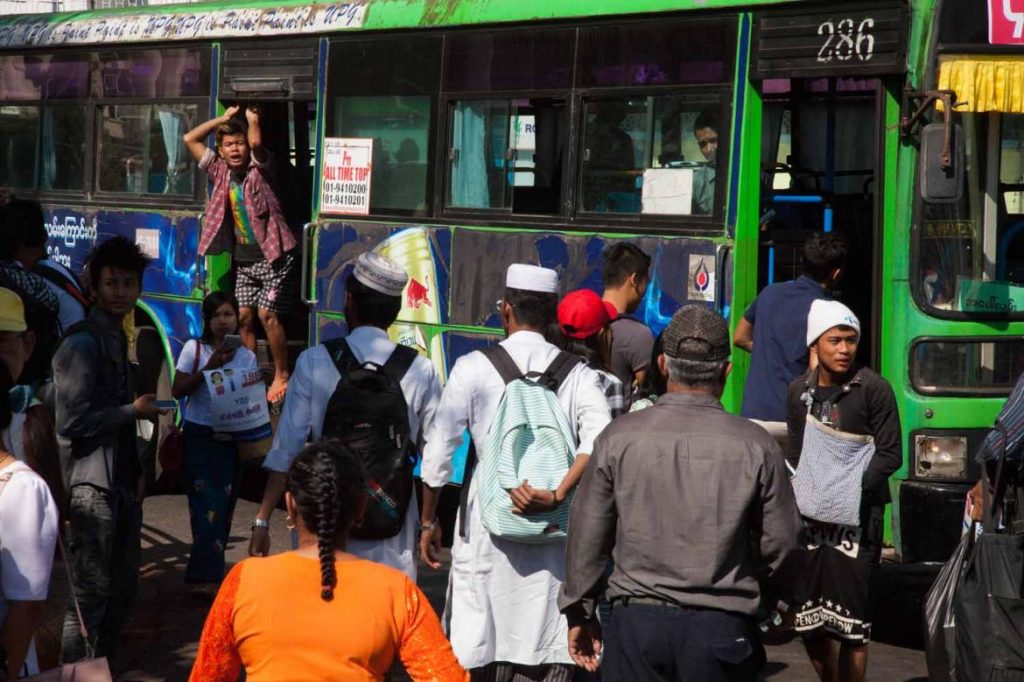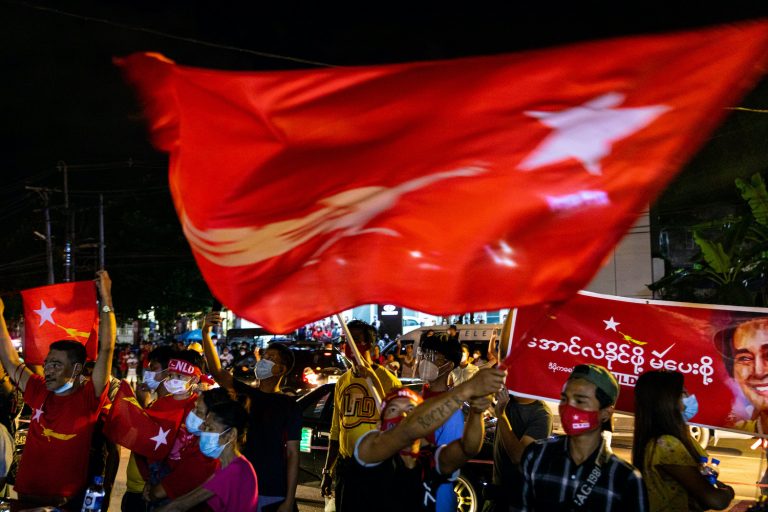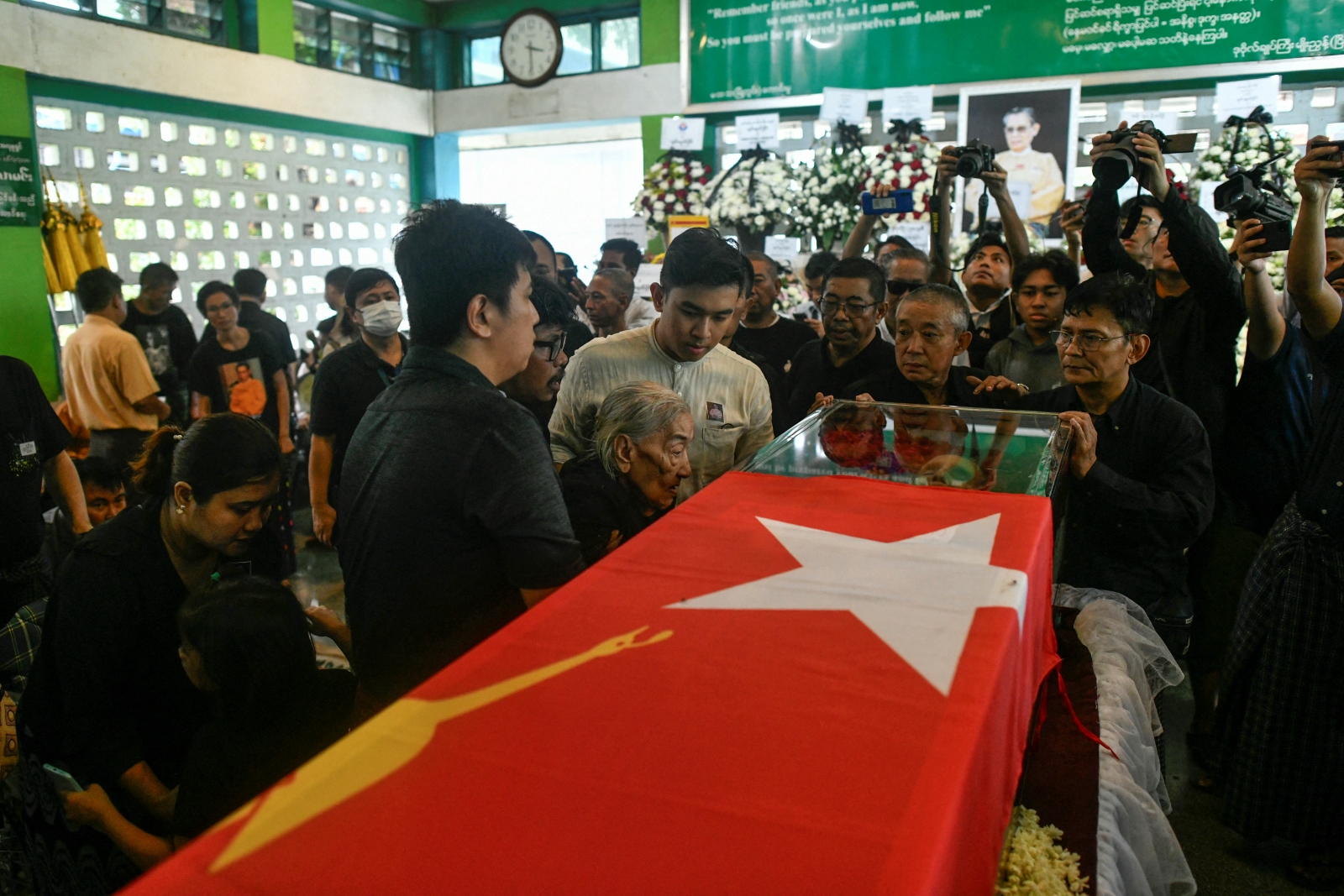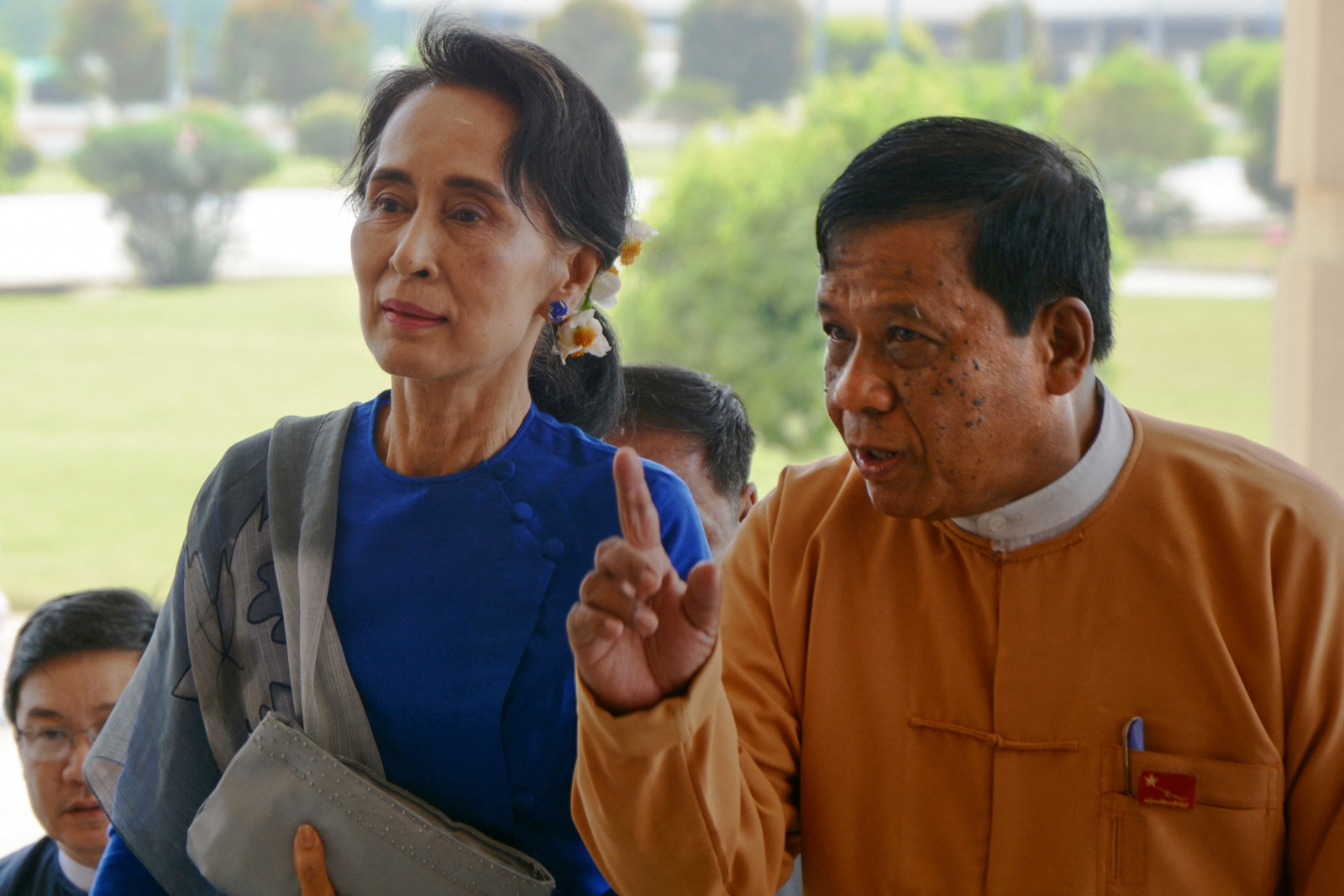Powerful vested interests were challenged when the NLD-led regional government introduced Yangon’s new bus service and the political significance of the move should not be underestimated.
By SITHU AUNG MYINT | FRONTIER
PEOPLE FROM all walks of life have been involved in the introduction of the new bus service in Yangon by the regional government. University students, members of organisations, Myanmar Police Force personnel, artists, volunteers and private businesses have worked together to assist passengers and help to make the change as smooth as possible.
The Yangon Region government, headed by Chief Minister U Phyo Min Thein, has strived to ensure the Yangon Bus Service is a success. In this endeavour the regional government has been supported by leaders of the National League for Democracy and members of parliament. People from throughout the country and Myanmar living abroad have followed news of the change with great interest.
On face value, it’s just a bus system. But the introduction of the YBS, an epoch-making development by the NLD-dominated Yangon regional government, is politically significant and may have far-reaching effects.
The introduction of the new bus service for Yangon’s long-suffering commuters has involved four major undertakings.
Support more independent journalism like this. Sign up to be a Frontier member.
The first was the dissolution of the Central Supervisory Committee for Motor Vehicles, known colloquially as Ma Hta Tha, which had controlled the city’s buses for more than 50 years. It has been replaced by the Yangon Region Transport Authority, established last year by the regional government.
Second was the reduction in the number of bus lines in Yangon from more than 300 to about 70.
The third was to scrap commission-based payments for drivers and conductors, which encouraged overcrowding and unsafe driving, and replace them with monthly salaries.
The fourth is the establishment of eight public-private partnership companies under the management of the YRTA to replace the scores of lines and vehicles owned by companies or individuals.
The dissolution of Ma Hta Tha was significant because of its influence and the huge amount of revenue generated by the buses under its control, which were carrying about two million commuters a day.
Based on the calculation that each passenger was spending K200 a day on fares, the system under Ma Hta Tha was generating daily income of K400 million, monthly income of K12 billion and yearly income of K144 billion (about US$106 million at current exchange rates).
However, actual income would have been much higher because most commuters were spending up to K400 a day on bus fares. Commuters had good reason to doubt Ma Hta Tha’s ability to effectively manage such a big operation. There were also questions about who was in charge of Ma Hta Tha, which was run by former military officers until it was dissolved.
Bandoola Transportation, a subsidiary of military-owned conglomerate Union of Myanmar Economic Holdings Ltd, operated two of the biggest bus lines, Parami and Adipadi. Many other lines were owned by former military officers or cronies.
As well as inefficient management, Ma Hta Tha’s reputation was also tarnished by allegations of corruption in almost every aspect of its operation. According to these allegations, corruption determined which buses operated on which route, if permits would be issued to import buses, whether CNG conversions would be allowed and in the setting of fares.
One of the biggest weaknesses of the system under Ma Hta Tha was that drivers and conductors were paid according to a commission system. It encouraged conductors to squeeze aboard as many passengers as possible. It also encouraged reckless driving, including racing buses operated by competitors on the same route to beat them to passengers at the next stop.
Conductors, who were more interested in taking fares than providing courteous service, were notorious for rude and insulting behaviour. Passengers regarded drivers, conductors, the bus service and Ma Hta Tha with contempt.
The decision to dissolve Ma Hta Tha was both difficult and significant because it involved a challenge to the vested interests of former military officers and MEHL. The much-needed reform of the city’s bus system was resisted when it was first proposed by the NLD-led regional government under Phyo Min Thein.
His efforts at negotiation went nowhere, prompting the decision to dissolve Ma Hta Tha and replace it with the YRTA. Not surprisingly, the change was opposed by the former military officers who ran Ma Hta Tha and those who own bus lines. They have not been cooperative.
The dissolution of Ma Hta Tha and the introduction of the new system aimed at providing better service for millions of Yangon commuters has important political implications for Phyo Min Thein, the regional government and the NLD.
The ruling party risks damaging its image if it fails in this endeavour. The new system could become an issue in the April 1 by-elections. Of the 18 vacancies to be filled, five are in Yangon Region, including four Pyithu Hluttaw seats and one in the Amyotha Hluttaw.
The introduction of the new system will be regarded by many as a crucial test of the NLD’s management ability. The political significance for the party should not be underestimated.







